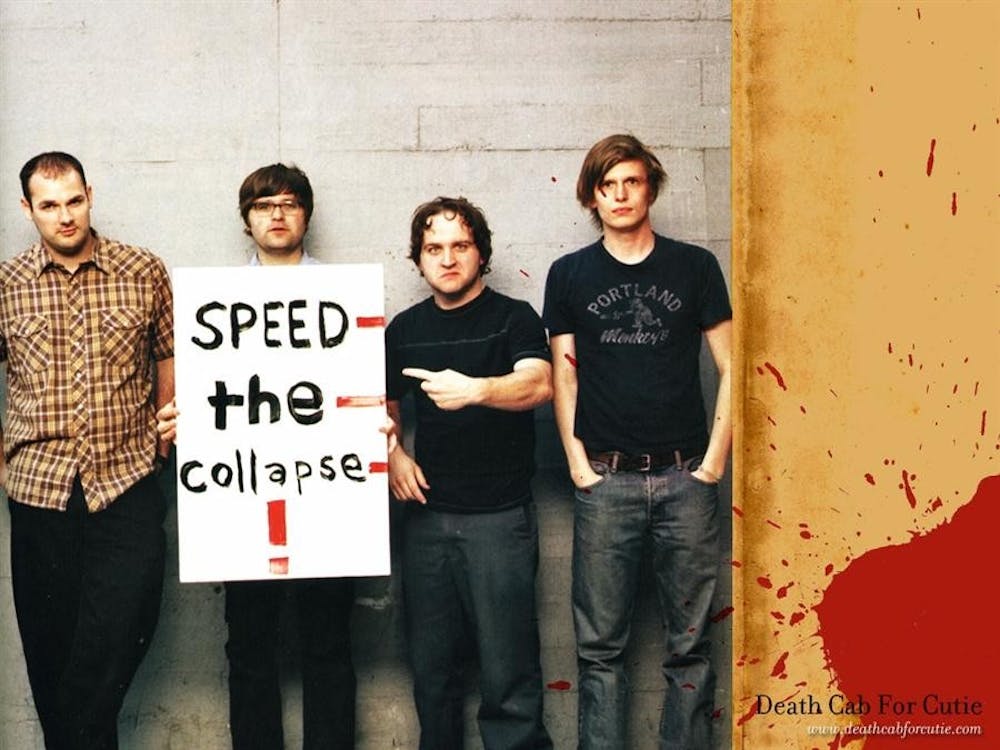My father has a scowl on his face.
The 2011 season of “American Idol” is in full swing and playing from the television in my living room. Beside Jennifer Lopez and Randy Jackson sits an aging man that meant more to my dad than any other musician growing up in the 70s.
Steven Tyler, the frontman of the classic rock band Aerosmith, evaluates a contestant’s performance, while my father judges the latest career move by the idol of his youth. Watching the television, my dad tries to seem unconcerned, but his defeated eyes and deep sighs give away his disappointment and disapproval.
My father’s expression seems to say this cannot be the same performer that played countless sold-out shows for him and his friends decades ago; that it must be an impostor.
Sitting on top of his stereo are over a dozen albums by Aerosmith. Some are live or parts of box sets, and he even has the Greatest Hits collection, which seems a little redundant. Each CD sits inside its original case, complete with wrinkled liner notes very much intact.
Beside those CDs is my ipod. As I notice his displeasure, it fills my mind with dread and questions about my own music idols.
Will my favorite artists follow the same well-trodden road of dollar-chasing and
artistic compromise?
Will Ben Gibbard still be making music when I am my father’s age?
Do poor reviews of a long-standing favorite mark the beginning of their end?
Does everything great inevitably fizzle and die?
In the blockbuster hit “Gladiator,” Djimon Hounsou’s character tries to impart some wisdom to Maximus in between his battles.
“You have a great name. You must kill your name before he kills you,” Juba said.
The advice begs idols to leave on a good note so they may preserve their greatness. It’s exactly what the two heroes of hip-hop Notorious B.I.G. and Tupac Shakur did and they are forever hailed as rap deities for it.
Had the two lived on to produce more albums, it’s possible they may not have been so well regarded in the long run. The conjecture seems pessimistic and perhaps it undercuts the rappers, but if history is any guide we see that “only the good die young” often means, “only the good know when to stop” or more directly, “the good are such because they died before they could taint our images of them.”
Seriously, if Kurt Cobain were alive right now he probably wouldn’t be showing up on the tops of music charts or all the T-shirts and merchandise the shopping malls are so flooded with.
Death can be the best career move of all.
The principle carries into the world of professional sports, as we have seen with Michael Jordan’s not-so-magical return to the NBA with the Wizards, and into literary realms with Jack Kerouac’s increasingly indiscernible alcoholism-induced ramblings well after “On the Road.”
So then what if Death Cab for Cutie would have died (no pun intended) right after their first major label release, “Plans?” Would they be immortalized as indie-rock pioneers, champions and masters?
Could Gibbard have been our generation’s Jim Morrison? The answer is a resounding “maybe.” Instead of taking advantage of the momentum though, they’ve shown that inspiration, an element tightly interwoven with quality, is something that
dwindles over time.
It is a grave transgression to produce under a glorious title without the same spirit that gained the reputation in the first place.
While the quote, “if you love something, you have to let it go” isn’t as intricately constructed as the sentiment of “What Sarah Said,” the idea particularly reverberates in light of the most recent career move by one generation’s idol.
How to Live Forever: Death & DCFC

Get stories like this in your inbox
Subscribe





